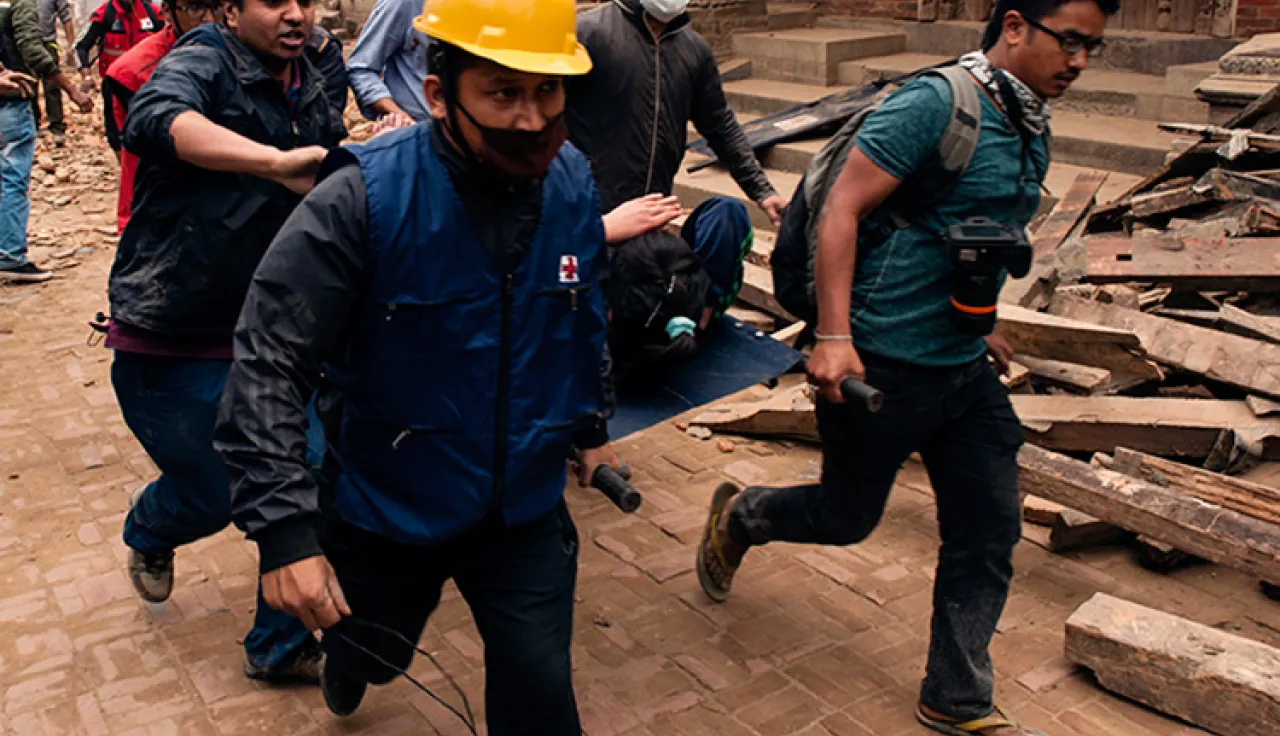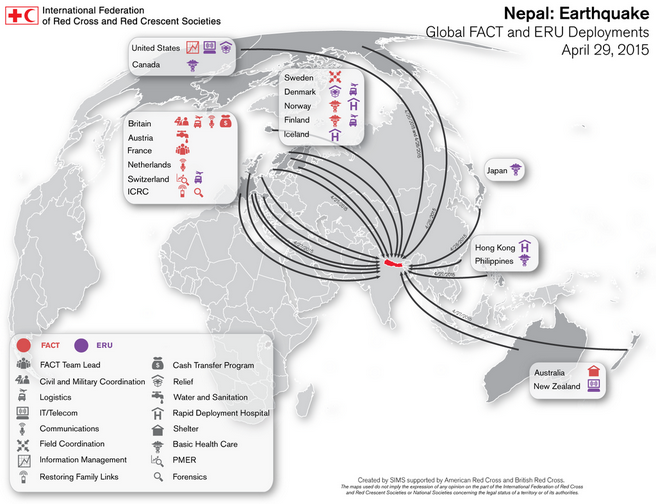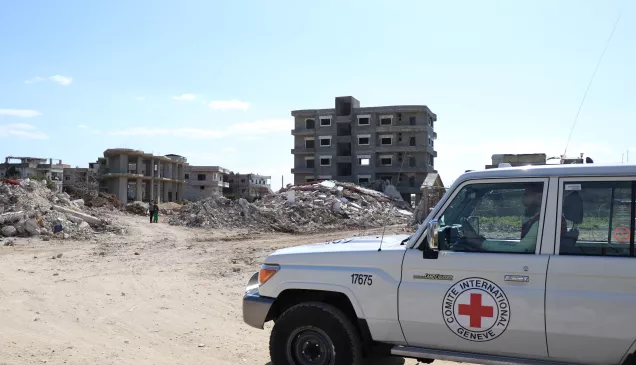Nepal earthquake: Red Cross steps up emergency response

The International Red Cross and Red Crescent Movement is stepping up efforts to help the people of Nepal following the devastating earthquake which has left over 7,650 dead, 16,000 injured, and thousands more homeless and living in temporary shelters.
The ICRC is supporting the Nepal Red Cross Society in their response to the escalating needs of families and affected communities. This includes restoring contact between family members separated by the earthquake, and providing critical first aid materials and support. Thanks to the availability of emergency kits, NRCS volunteers were among the first who arrived to treat the wounded and to rescue those still trapped.

Map showing the International Red Cross and Red Crescent Movement's global response to the Nepal earthquake.
The ICRC is also promoting proper and dignified management of dead bodies avoiding that unidentified bodies are cremated or hastily buried. To this end, we have provided 400 dead body bags to the Department of Forensics Medicine. In addition, 7 sets of dressing modules have been provided to the hospitals to treat quake injured people.
For an update on our work in Nepali, visit our blog.
Reconnect with family members
If you are concerned about a family member who may have been affected by the earthquake, visit familylinks.icrc.org to register or search for missing relatives.
If you are safe and wish to let people know where you are, register now and ensure that family members know you are OK.
If you speak Nepali, visit the dedicated version of familylinks.icrc.org.

A young girl and her sister are among the countless displaced families who lost their homes after the April 25th earthquake and are now being supported by the Nepal Red Cross. Patrick Fuller / IFRC
Support the Red Cross
The International Federation of the Red Cross and Red Crescent Societies has launched an emergency appeal to assist people affected by the earthquake. The appeal will allow the Red Cross Red Crescent to provide critical, life-saving support such as emergency shelter and health care, food, water and basic sanitation. Support the appeal.


